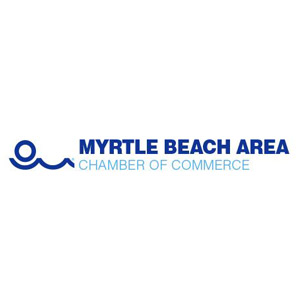Traveling to the Birthplace of Famous Foods

You’ve probably heard of fondue, French fries, cheesecake, and croissants. But have you ever tasted them in their countries or origin? From Switzerland to Greece, here are four popular foods that have been around for centuries, still taste as good today, and that may surprise you!
Fondue
If you’re a lover of all things cheesy, you may be familiar with a dish called fondue. Fondue is a melted cheese dish often served in a ceramic pot to keep the cheese melted. Chunks of bread are torn apart and dipped into the melted cheese. Many believe fondue is a French creation thanks to its cheesy background, but it dates back to Switzerland! In the 1930s, many families had limited access to fresh foods during the cold and harsh winters, but there was access to aged cheeses and bread that could solve the problem. To counteract the cheese’s age and the staleness of the bread, the local villagers found that they could heat the cheese with wines, garlic, and herbs to use as a dip for the bread to soften it. Over time, this way of cooking became a Swiss winter tradition to help warm up during the extreme cold! Today if you want to eat as the Swiss do, then make sure you stop by Chalsap in Zurich! This restaurant is a renovated stable on a former farm positioned on a hill with a stunning view of Lake Zurich. You can enjoy over 17 kinds of fondue, from a house blend passed down the recipe to a daring fondue with hot, spicy chili.
French Fries
French fries have become a quintessential side dish for many, with most accepting the name as the true origin of the food. However, the history books tell a different story. The actual home of the dish is Belgium! The story starts with francophone Belgium, where locals were very fond of fried fish. In 1680 the river Meuse froze over during a bad winter, so the locals decided to try frying potatoes instead, and the traditional fry was born. The name “french fry” also comes from this area during WWI. American soldiers stationed in the area at the time combined the name of the town and the name of the food and dubbed it “french fry.” Today you don’t have to go far to find the perfect Belgium french fry! You’ll find many fritkot (fry kiosks) across the city, but none as desired as Frit Flagey. You’ll find long lines that are worth the wait at this establishment, with crispy fries you can take on the go to enjoy at one of the bars or eat on a bench to enjoy a sunny day.
Cheesecake
Cheesecake is a beloved desert that has become attached to New York over time. However, the history dates even further back, starting approximately 4,000 years ago in Ancient Greece! The first cheesecake has been traced back to the Greek island of Samos, where anthropologists have excavated cheese molds. The Greeks viewed cheesecake as a source of energy and served it at the first Olympic Games in 776 B.C. During this time, you would often see cheesecake as the traditional dessert served at weddings due to its simple ingredients of flour, wheat, honey, and cheese! The first written recipe came from Athenaeum, who wrote the original Greek recipe in 230 A.D. As the Romans gained more power and grew their empire, they introduced cheesecake to the Europeans. People in Great Britain and Eastern Europe began experimenting with twists on the recipe and created the version of the cheesecake we now know.
Croissant
Croissants are the warm flaky breakfast food of your Parisian dreams, with only one problem. Croissants are actually an Austrian delicacy! The ancestor of the croissant is called kipferl and dates back to the 13th century. The story starts in 1683 with the Austrian victory over the Ottomans at the siege of Vienna. A baker had just started his day early to start baking the goods needed for his bakery when he heard the Turks traveling through the underground tunnel in the city and sounded the alarm. The crescent shape is a poetic tribute to the town’s spirit that was able to go against the invading force. The croissant morphed and became the french staple in the early 1800s, the first evidence dating back to August Zang. August Zang was a former Viennese military officer that moved to Paris to seek his fortune. He eventually decided to bring Austria to Paris and opened an upscale bakery named Boulangerie Viennoise, after his home country. At the time, the typical french bread was cheap, stiff, and lacking in flavor. When Zang opened his doors, he saw immediate success over the sweet, soft, cooked dough that wafted through the doors daily. Today if you are looking for a classic croissant, you need to look no farther than the oldest boulangerie, Stohrer. This bakery sticks to the traditions of the traditional bakeries by creating staple cake-like croissants.
Don’t know where to get started? Thomas Hogan Vacations is your premier Myrtle Beach travel agency. Nothing beats the advice and resources of a real, life travel expert. We have the knowledge, experience, continued education, and, most importantly, the relationships to help you find the best accommodations, routes, and services! Please fill out our online inquiry form, or contact one of our agents to start packing for your getaway!







